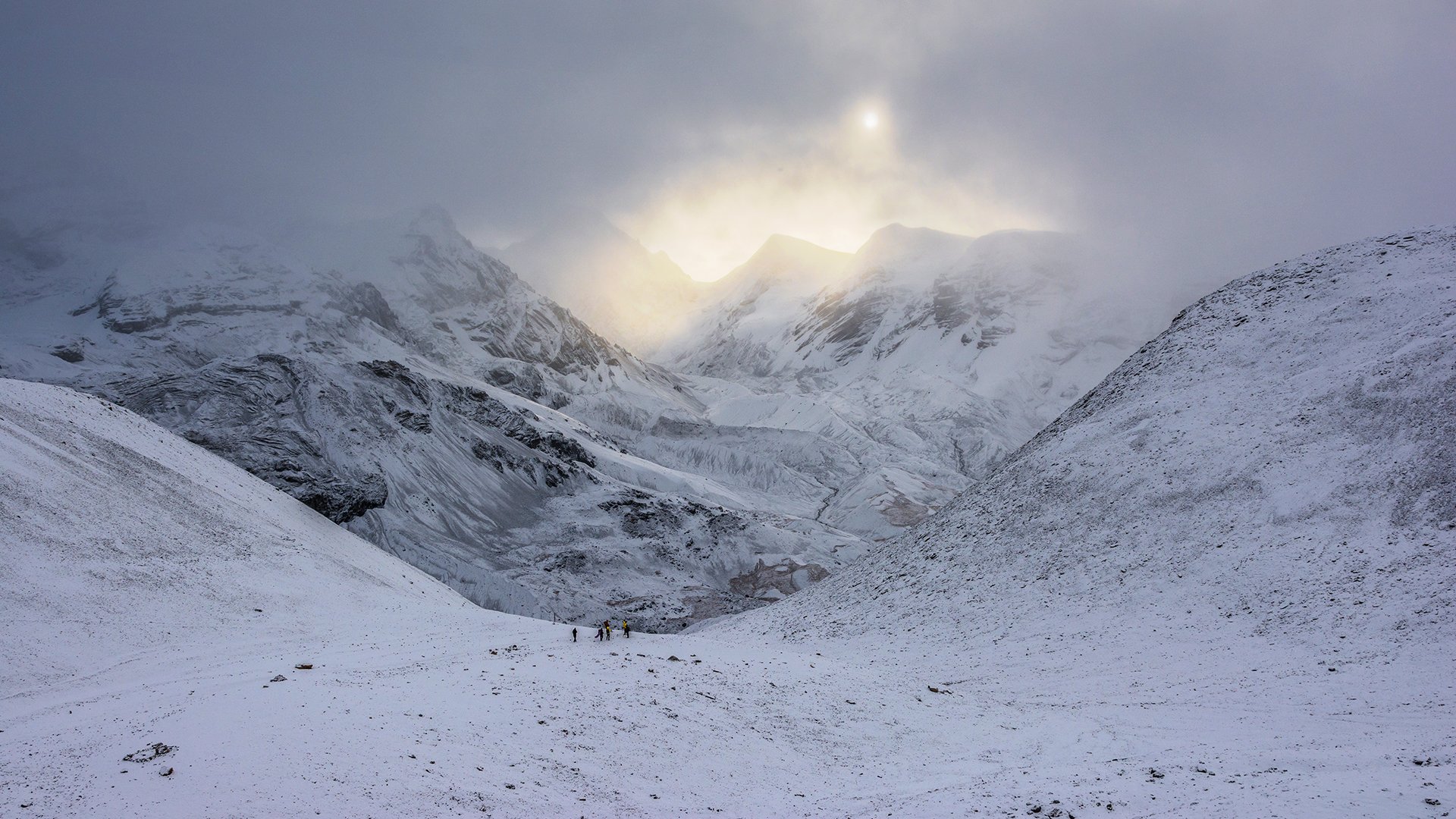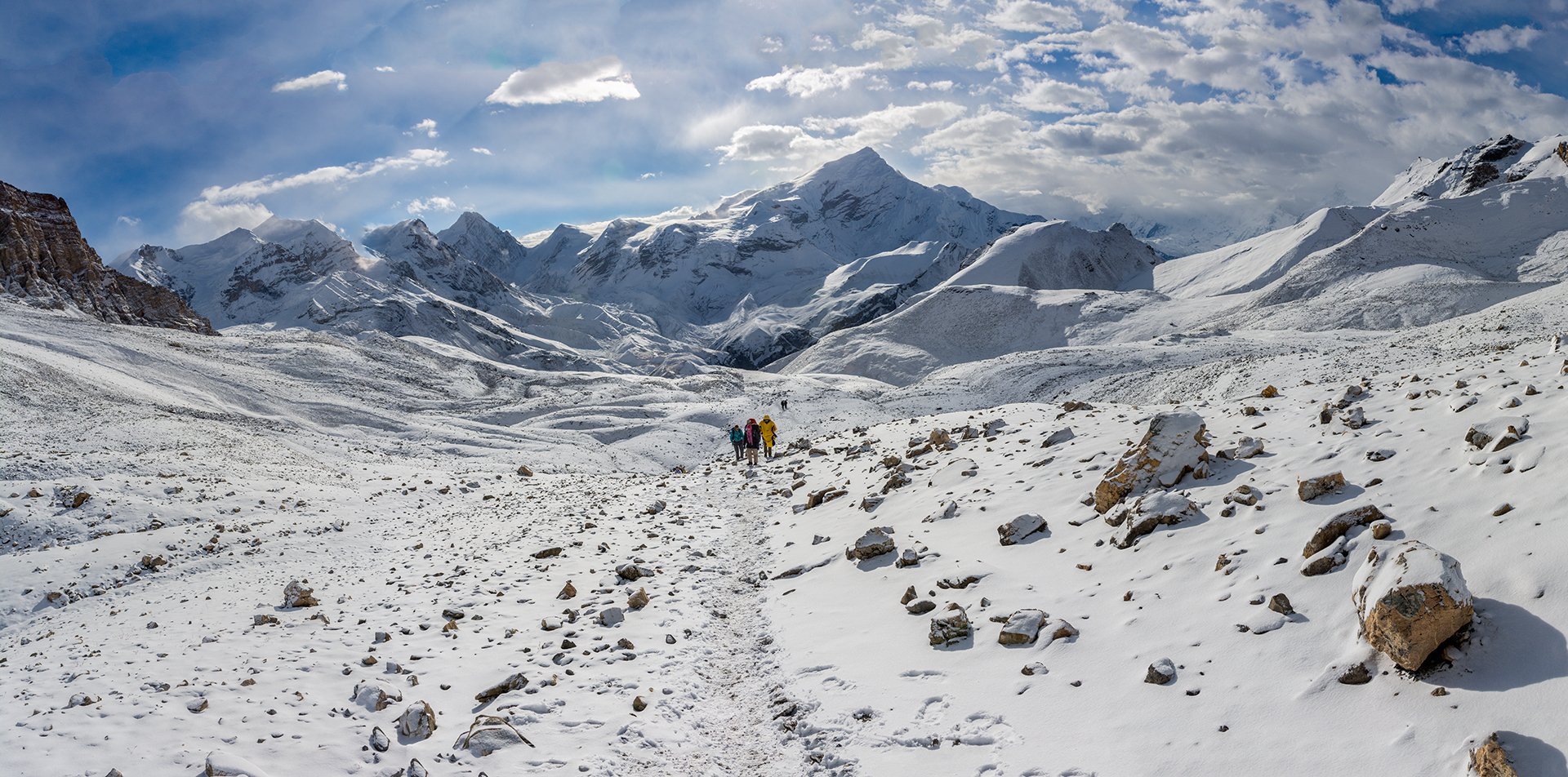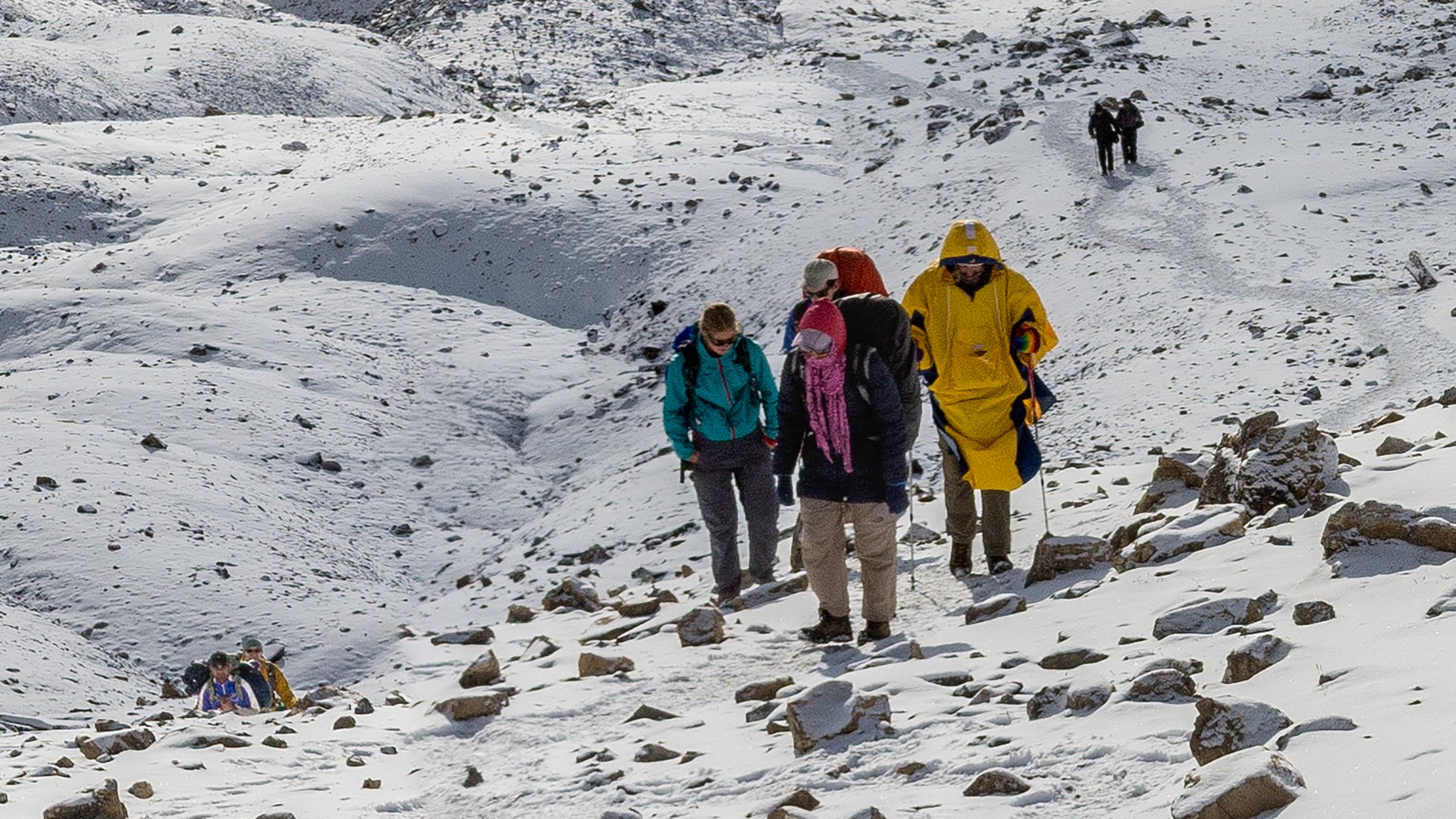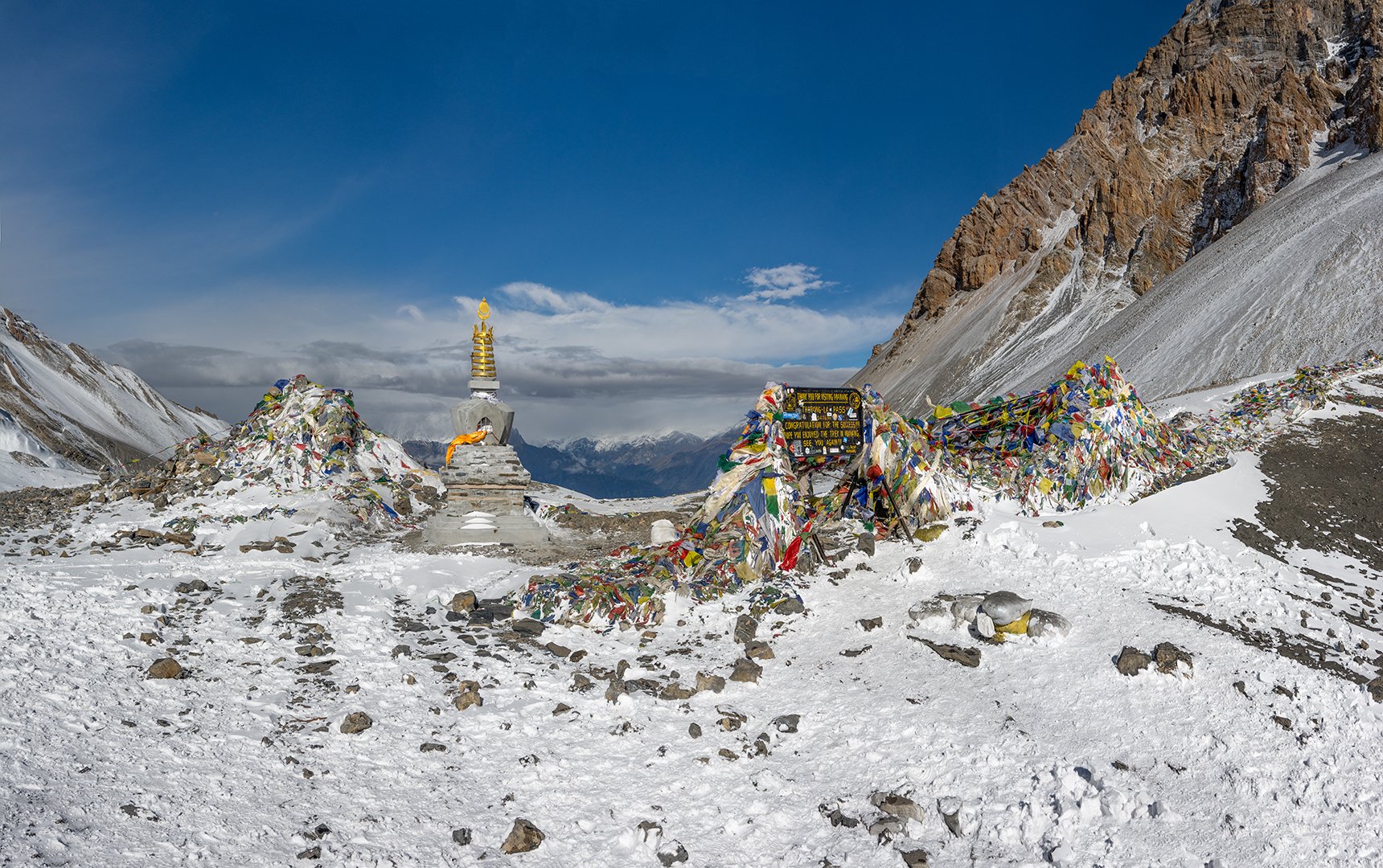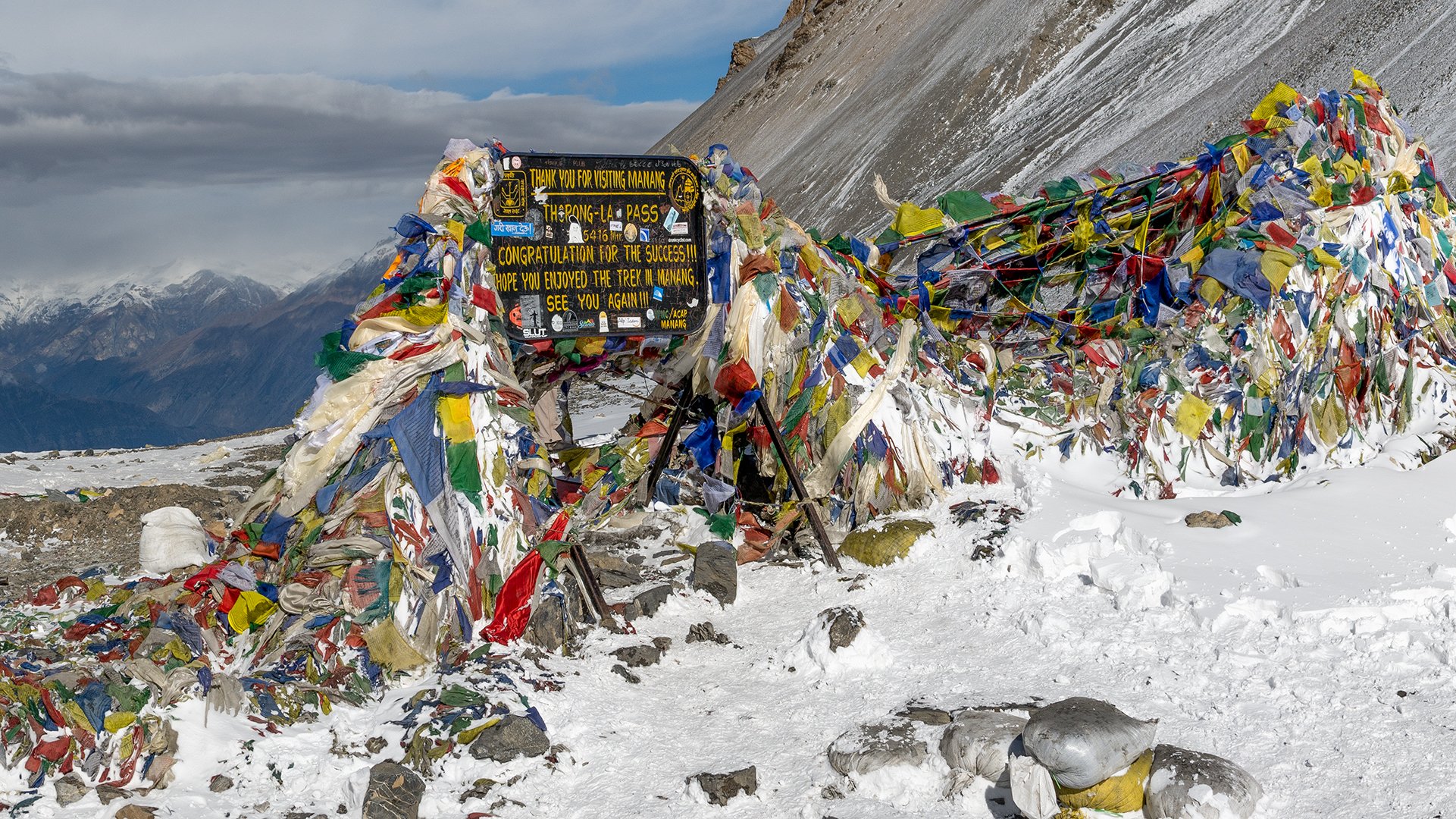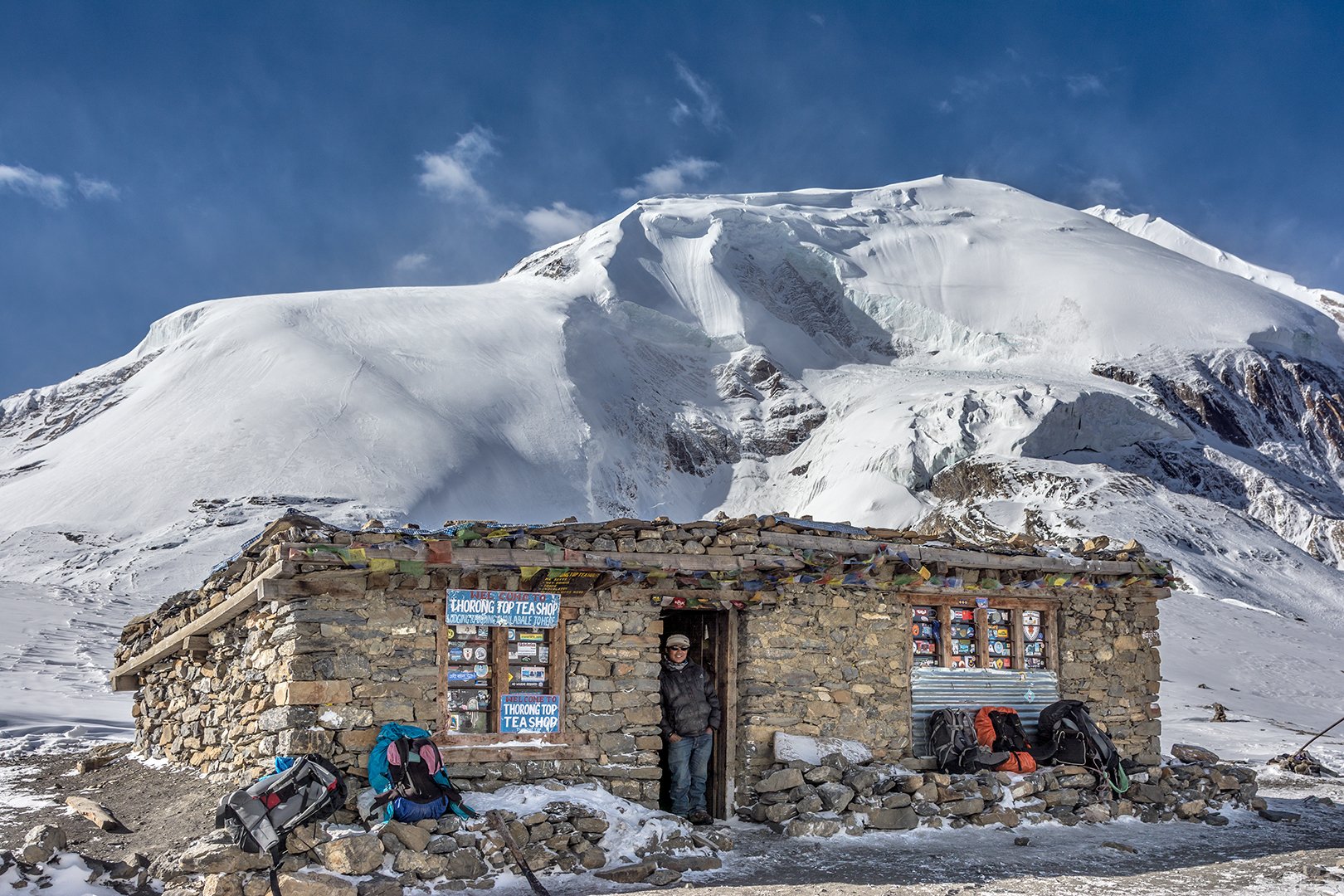
VincentRJ
Advanced Member-
Posts
2,345 -
Joined
-
Last visited
Content Type
Events
Forums
Downloads
Quizzes
Gallery
Blogs
Everything posted by VincentRJ
-
New climate study raises alarm for Asian Megacities
VincentRJ replied to webfact's topic in Thailand News
What a load of propaganda!! It's well known that mega cities like Bangkok are at risk of subsidence. Sea level rise is trivial compared to the rate of subsidence. -
Rational people would meditate, or fast, or eat a healthy diet, or exercise regularly, for a good reason. Most situations have both positive and negative attributes. For example, meditating, which can take up a lot of time, is essentially 'doing nothing'. If you've organized your affairs so you have the time to sit down doing nothing, for long periods, then that's fine. The more rational you are, the more likely you are to discover and consider both the positive and negative attributes and compare their significance. The less rational you are, the more likely you will be attached to specific qualities which you like, or which give you pleasure, and ignore the other related issues which could have disastrous consequences in the future. Buying a house with a great view, without considering the negative attributes, such as losing the house in the next flood, is irrational, unless you are very wealthy, and/or can afford the huge insurance premiums, and/or have a private helicopter which can safely remove you from any sudden flooding. But even then, where does the helicopter land? A wealthy person might not have a care in the world about losing the house, but if he's a rational person he should consider the safety of himself and his family. "I speak of irrationality as a non-rational state that is beyond the mind (not achieved by thinking)." It's not accurate to describe all mental processes as rational. If there are no mental thought processes going on, then there's neither rationality nor irrationality.
-
Sorry! I can't agree. A lack of rationality is a fundamental cause of most of the problems and suffering so many people experience in this world. I'll quote just one example, although I could quote hundreds. ???? A couple are searching for a home to buy and come across a suitable house on a river bank with an amazing view. Wow! The price is good. The view is good, and the house is fairly close to our current work-place. Let's buy it. However, in many areas, rivers tend to flood every few years. Since we now have an internet service which provides records of lots of historical events in the past, in numerous regions, a rational person would think, 'Before I make a decision, I'll check the historical record of flooding in this area where the house is located.' I'm sure the Buddha would also have advised that (if he were alive today), but unfortunately the desire for a nice view trumps rationality. The couple buy the home, and 3 years later it's totally destroyed by a massive flood that records show, has occurred, on average, every 20 years since records began, and that there have been even worse floods in the same area 50, 80 and a 100 years ago.
-
The Buddha seems to have been a very rational person to me. It's why I've been interested in Buddhism. If one separates the mystical mumbo jumbo from his basic teachings, he's encouraging a rational approach to achieving a distress-free life. Have you read the Kalama Sutta? However, I suspect the Buddha understood that for most people, the desires for pleasures, sex, tasty food, fame, vanity, wealth and power to enhance one's ego, and strong attachment to these things, and so on, were too embedded in the population, and that his enlightened teachings, appealing to the rational mind, would only penetrate a few people, which is the reason why he initially considered continuing his life, after enlightenment, in a state of meditative calm in the forest, to avoid the hassles of teaching to irrational people.
-
Of course, no-one can do the impossible. That's the definition of 'impossible'. However, you surely must understand from the history of the human race, that many, many things that were considered impossible in the past are now possible, and many, many concepts that could not be grasped by the rational mind in the past, can now be grasped. That's progress. I don't even think any primitive tribal person would ever think that pointing at the moon with his finger is the same as being on the moon. ????
-
Everything that everyone experiences is an experience within themselves, whatever the motivation, goal or circumstances. Even when a group of people are participating, cooperating, or competing, as in a football match, the individual experience of each footballer will be their own experience, and will be different, to some degree, to the experiences of the other footballers in the same game. Since everyone experiences something within themselves, the important teaching of the Buddha is 'how to think for yourself', as outlined in the Kalama Sutta. Most people too easily just accept the advice of an established authority, whether the authority is a religion, a doctor's advice, a guru's advice, investment advice, or a claimed consensus of scientists promoting fear about increasing CO2 levels. "2. You say "...when one considers that a major point in the Buddha's teachings is that the existence of a Creator God is an 'unknowable', and therefore it's a waste of time speculating on its existence and characteristics." I think there is confusion on this point. The stress of that sentence should be on the word SPECULATING, because that's indeed a trap. Speculating is thinking, and thinking comes from the mind. So, it's a waste of time thinking about the unknowable, but that doesn't imply that one shouldn't use other ways to connect with the unknowable that don't include thinking. I'm talking about meditation. When you manage to keep your thoughts on a leash, you free and open yourself to different vibes, so to speak. And that's one of the most basic Buddhist teachings: that words are nothing compared to personal experience. Yes, the Godhead is unknowable for us, but that shouldn't stop us from trying." Wow! 'Words are nothing compared to personal experience.' What are you trying to say?? ???? All animals have personal experiences in order to survive. To flee from danger requires an experience of danger. However, humans are unique in the sense that we not only have a capacity for experience, but also a capacity for words that describe those experiences. Without that capacity for words we would still be like Monkeys and Apes. Even the most primitive tribes that still exist in remote places, have words, although relatively few words and no writing. As tribes or civilizations develop, more words are created in order to avoid confusing different entities as the same thing. For example, a primitive tribe might have just one word for all trees. Whilst they can probably see a difference between different species of trees, they haven't got around to creating new words to define those different species of trees. Meditation obviously can have benefits, resulting in a peaceful and calm mind, and a release from all the hustle and bustle of normal, human activity. However, using the strict meditation guidlines employed in certain retreats and advocated by certain gurus, can have harmful effects for certain people with pre-existing psychological problems. I believe some retreats require visitors to sign a documant stating that they have had no previous psychological problems, before they are accepted to begin meditation practice. Since a goal of Buddhist meditation is a cessation of all thoughts, whilst still being aware, it does make sense that no words could accurately describe such an experience. Words are thoughts. No thoughts mean no words.
-
I think it's rational to presume that nobody has any real and precise evidence of what the Buddha experienced in his meditation. In order to get such evidence, you would not only need to have some miraculous ability to get inside someone's mind and experience exactly what they are experiencing, but also to get inside the mind of a person who died around 2,500 years ago. Are you aware that there are no written records dating to the time of the Buddha's life? Everything we know about the Buddha has been passed down by memory over several generations. After about 400 years, those memories were first recorded in the Pali script, in Sri Lanka, during the first century BCE. The story about the Creator God, Brahma, persuading the Buddha to teach what he'd learned during his ascetic wanderings and meditation, seems very puzzling when one considers that a major point in the Buddha's teachings is that the existence of a Creator God is an 'unknowable', and therefore it's a waste of time speculating on its existence and characteristics. That the story is propaganda, to assist the Buddha to teach and integrate into a Vedic environment where most people believed in a Creator God, is the best explanation I can think of. Perhaps you have a better explanation. ????
-
Once again, we need to precise with our definitions. There's a distinction between Brahma and Brahman. Brahma is the Hindu (or Vedic) creator of the universe, that is, a Creator God. 'Brahman' is a metaphysical concept that connotes the highest universal principle, and/or the 'ultimate reality' in the universe, and/or the 'binding unity behind all diversity'. Buddhism initially evolved in this Vedic environment, and the teachings of the Buddha were opposed to some of the Vedic beliefs, in particular, the concept of a Creator god and a permanent soul, which obviously would create problems. In order to surmount such problems, a story was created about the Buddha's thoughts soon after he achieved enlightenment, He wondered if there would be any point in teaching his insights, because most people would be incapable of understanding such profound insights because they were so attached to material possessions, emotional pleasures, vanity, ego, greed, and power. He thought, perhaps he should spend the rest of his life in peaceful calm in the forest. However, according to the story, the Buddha changed his opinion when the Creator God, Brahma, descended into his consciousness, and implored him to teach his great wisdom, because at least a few people would understand his message, which Brahma accepted as true. Can you see the propaganda in this story? If the Buddha were to attempt to teach his enlightened views to a population who believed in a Creator God and a permanent soul, he probably wouldn't achieve much success. However, if that Creator God, Brahma, were to bow to the Buddha and encourage him to teach, then his success would be greater. And it was greater, because a new religion was created.
-
Corruption is never acceptable. However, there are sometimes positive aspects. In this case, the police are basically saying, pay us (for example) 30,000 baht, or we'll arrest you and charge you for your crime, and you'll pay (possibly) 500,000 baht in lawer's fees to defend yourself, and the Thai coverment will spend 500,000 baht in prosecuting you, and if you are convicted, the Thai government will spend a million or several million baht, supporting you during your jail sentence. Which is better from a purely economic point of view for the Thai government, as well as the perpetrator?
-
As long as we continue emitting CO2, the planet will be okay. Plants love CO2. It's their food. Without it, they all die. Without CO2, no life would exist. What a terrible pollutant is CO2. ???? (sarc)
-
Toyota bursts into flames at Ratchada/Lad Phrao intersection
VincentRJ replied to webfact's topic in Bangkok News
Is it possibly a battery-operated car? Spontaneous combustion is a problem with electric Vehicles. -
Two Thai women die during a mountain trek journey in Nepal
VincentRJ replied to webfact's topic in Thailand News
I agree that it is a beautiful circuit, but the highest point is 5,416 metres at the Thorong-La pass. This could be a problem for those who have not adapted to such heights, and/or those who have certain medical problems and are not fit. Attached are a few more images I took of the area surrounding Thorong-La. After a snow fall, it looks as though the track could disappear. -
Two Thai women die during a mountain trek journey in Nepal
VincentRJ replied to webfact's topic in Thailand News
I've trekked in Nepal several times during my life. The first time was in 1964 and the last time was in 2013 when I trekked the Annapurna circuit, reaching a height of 5,416 metres. To avoid altitude sickness, if one is not used to great heights, one should approach the high points very gradually to give time for the body to adjust. The problem is that most people pay for a fixed schedule where everything is pre-organized, whereas I demand control overe 'where I will stay' and 'how long'. Sometimes the guides are not happy with this. Too bad! At, say, 2,000 metres, I find a hotel with a nice view, and stay a couple of nights or more, wandering around during the daytime taking photos of the village life. At, say, 3 to 4,000 metres, I'll spend another 2 or 3 days at a nice location, to get used to the height and explore the surroundings. Then when I reach 5 to 6,000 metres, I experience no altitude problems. Attached are 3 images I took in 2013 at the Thorong La Pass, which is at a height of 5,416.- 25 replies
-
- 16
-

-

-

-
Study shows about 15 percent of Thai students are prone to suicide
VincentRJ replied to webfact's topic in Thailand News
Perhaps some of them are depressed because of the devastating consequences of human-caused climate change which is continuouslys promoted in the media. They have no hope for the future. -
There is, of course, another Buddhist 'Sect', in Thailand, which addresses this problem of significant monetary donations to temple organizations, which seems against basic Buddhist principles. It's called Santi Asoke. The following article provides lots of details. https://www.asoke.info/bunniyom/insight-santi_mobi2.html "Going back to Buddha's fundamental teachings, Santi Asoke counters the mainstream materialism and consumerism and has set up an "utopian Buddhist society" in Nakhon Pathom where members live, work, and produce food on the basis of communal harmony. Apart from its model Buddhist villages, Santi Asoke members - predominantly professionals, middle class, to lower middle class - have also set up a model grocery store and herbal product business based on their intention to help consumers rather than make profits. The Santi Asoke projects have drawn much attention and admiration from academics for their projection of an alternative lifestyle according to Buddhist beliefs vis-a-vis Western-style consumerism, so much so that they are willing to dismiss his antagonistic approach."
-
It woukld take a long time to respond to every point you make, so I'll just begin with the distinction between objective realty and subjective reality, as I understand it, of course. Objective reality is a reality that applies to all people of all cultures, regardless of their differences. For example, if anyone were to kick a hard brick wall with his or her bare foot, with the same force that a footballer kicks a ball to score a goal, then the person will damge his foot, no exceptions. The extent of the damage, and how many toes are broken, will depend on many factors, such as the angle of the kick onto the brick wall, the force of the kick, and the physical strength of the person's foot. The subjective reality is the amount of pain and emotional stress that such a person would experience. If the person's leg were injected with a local anaesthetic, prior to the experiment, he/she would probably feel no pain at all. That's also an objective reality. However, in the absence of anaesthetcs or pain killers, the amount of pain suffered would vary subjectively. Some people would howl and cry and groan, whilst others would take it more calmly. A well-trained Buddhist monk who had succeeded in controling his emotions and thoughts, would probably feel just a basic pain that tells him something is wrong with his foot. Pain is a natural messenger from the body, which tells one that something is wrong and needs fixing. Another obvious example of the difference between subjective and objective reality, is the taste of food. Any plate of food can be successfully examined, through scientific analysis, to document all the various chemicals in the food, which is also objective reality. But that analysis cannot predict whether everyone will enjoy the food, but it can predict that anyone eating the food will die if the food contains a deadly poison. Enjoyment of the taste of a particular type of food is subjective and depends mostly one one's cultural background. However, modern science has the capability to detect such enjoyment through fMRI scans of the brain. In other words, if a person were to eat a plate of food whilst undergoing an fMRI scan, and for some reason lied that he liked the food, when asked, the fMRI scan would show that the person was lying. Here's an interesting article explaining the reward processes in the brain. "When exposed to a stimulus which is rewarding, the brain responds by releasing an increased amount of dopamine, the main neurotransmitter associated with rewards and pleasure. Dopamine is mostly produced in an area of the brain called the ventral tegmental area (VTA), located within the midbrain." https://www.simplypsychology.org/brain-reward-system.html#:~:text=When exposed to a stimulus,)%2C located within the midbrain
-
I can't remember reading it, probably because your posts are so long. I can't think of any example where the 'methodology of science' has failed, but there are numerous examples where the 'methodology of science' has not been applied with sufficient rigour, and numerous examples where erroneous assumptions have been made due to insufficient data and evidence, and/or incorrect interpretation of the data. For example, Isaac Newton's theory of gravity implied that the universe should be in a state of collapse, as each body exterts an attractive force on every other body (star and planet). At that time, however, there was no evidence that the universe was either expanding or contracting, so an assuption was made that the stars in the universe were static, and that God was keeping them static, against the laws of gravity. In those days the only observed galaxy was the Milky Way. When Edwin Hubble, using more powerful telescopes, discovered there were other galaxies in the universe and observed, due to the doppler effect (redshift), that the farther apart galaxies are from each other, the faster they move away from each other, it became apparet that the universe is expanding. It is the application of the 'methodology of science', in conjunction with new and more sophisticated tools and devices, which allows the discovery of errors that are frequently made during scientific enquiry. Got it? ????
-
One thing about which the IPCC is confident, is that warming will increase rainfall, globally. This should make sense to most people who have only a basic understanding of science. A warmer climate causes more evaporation of the oceans and lakes. The evaporated water does not leave the atmosphere to outer space. It comes back as rain. However, whilst some areas might get wetter, other areas might get drier. Changes in climate are not uniform over the entire planet. Fortunately, we have the technology to distribute the water from where the rain falls in excess, to where it doesn't fall, by building dams and long-distance water pipes. Increased rain and increased atmospheric CO2, plus a warmer climate, are all excellent for increased plant growth. On the issue of over-population, a friend who was an architect made the comment, a few years ago, that the entire world population, then around 7 billion, could be accommodated on an area of land the size of Tasmania. I thought at the time that was rather fanciful, so I did some calculations. The area of Tasmania is 68,403 square Km. One square Km is one million square metres, so 68.4 thousand square km translates to 68.4 billion square metres. Using a figure of 8 billion for the current population would mean that each person on the planet, (man, woman and child) would be allocated a space of 8.55 square metres at ground level. That's the size of a very small bedroom. A reasonable living area would be, say, 6x that area, which is around 50 square metres. That means a family of four would have more than 200 sqare metres of living area, which is equivalent to a large house. To achieve that allocation would require 6 storey buildings covering the entire area of Tasmania, but that excludes walls and roads, and many other requirements. To create space for these other requirements, one would have to increase the number of storeys. To create room for all the walls, corridors and lifts within each building, the height would be raised to, say, 7 storeys. But of course, one needs a lot of areas for roads, and also parks and recreational areas, otherwise living there would be awful. Thankfully, as a result of modern science and technology we can build 100 storey buildings. If we multiply the 7 storeys by 8, we get 56 storeys. In other words, the total area covered by buildings is just 1/8th of the area of Tasmania if all the buildings are 56 storeys. That leaves plenty of room for roads and parks. However, we still need to create room for shops, supermarkets, warehouses, maintenance areas, manufacturing areas, offices, and so on, so let's add another 10 storeys. We now have 65 storey buildings covering 1/8th of the area of Tasmania, all connected with roads which occupy, say, another 1/8th of the total area of Tasmania. That leaves 3/4ths of the total area for parks and forests. I'd say that any city which allocates 3/4ths of its area to parks and nature is acceptable. I should also add that I'm talking about the application of modern technology. All these skyscrapers would be located in different areas which are interconnected with sophisticaed railway networks. Wherever you live, you could travel quickly to any destination by taking the lift, and/or escalator, to the nearest railway station. Personal cars and electric vehicles would be obsolete in this situation. Also, in this situation where 8 billion people live in an area the size of Tasmania, there would probably be another 8 billion people, or more, living in the rest of the world, who are producing most of the food and various other products. The energy supplies for this vision of the future would have to come from nuclear power. Solar power and wind would not pass muster. ????
-
This illustrates the point I've been trying to make, and is why I introduced the issue of 'Climate Change' many pages ago in this thread. Most people don't have the ability or interest to do their own research on the internet and check the actual data. They prefer to watch the news on the TV or their iPhone, and accept what they are told, just like those who subscribe to a particular religion tend to accept the authority of the priests. The so-called great authority on the climate issue is the IPCC which has stated in the past that climate is a complex, non-linear, chaotic system and that accurate predictions of future climate are impossible (or at least very challenging). In order to save face, as a result of past, inaccurate predictions, they now use the word 'projection', but such projections still rely upon computer models which cannot take into consideration all of the influences on climate, because all the influences are not known and even those that are known cannot be accurately quantified. The problem is, societies in general do not want uncertainty, and politicians cannot motivate the population to follow an agenda which involves the investment of huge amounts of money, if the true degree of scientific uncertainty is expressed, which is why, of course, every extreme weather event is used by the Mainstream Media (MSM) as a confirmation of human-caused climate change. The distinction between weather and climate is so often confused. How often have you heard the claim in the media that an extreme weather event was caused by 'climate change'? Climate is not a cause, but a result of numerous causes. However, what can be claimed with a high degree of scientific certainty, is that mankind's total effect on the environment, including deforestation, the creation of massive 'concrete jungles' (cities and roads), pollution due to the release of toxic chemicals and massive amounts of plastic garbage which is not recycled, and so on, must have at least some effect on our climate. Precisely quantifying that effect is an impossible task, so demonizing our CO2 emissions is the political solution, because all fossil fuels emit CO2 which is very expensive to sequester in the ground.
-
I get the impression that you don't really understand the 'methodology of science'. 'Science' is never settled. There's always some degree of uncertainty, however small that uncertainty is. If a scientist were to spend his entire career studying 'evolution' and discovered that the theory was based on false premises, then he would probably become as famous as Charles Darwin, and would probably be nominated for a Nobel prize, provided, of course that he was able to demonstrate, in accordance with the Methodology of Science, that the premises were false. A very important part of the Methodology of Science, is the process of Falsification, that is, devising an experiment that shows that a particular theory is false. A very basic example of this process of 'Falsification', is the Galileo experiment which falsified the Aristotelian concept that heavy objects seek their natural place faster than light ones, ie., that heavy objects fall faster. Gilileo supposedly dropped, at the same time, two iron balls of significantly different weights, from the leaning Tower of Pisa, and found they both hit the ground at approximately the same time. Of course, there was a slight difference due to the air resistance. A feather would fall at a much slower rate. However, astronaut David Scott performed a version of the experiment on the Moon during the Apollo 15 mission in 1971, dropping a feather and a hammer from his hands. Because of the negligible lunar atmosphere, there was no drag on the feather, which hit the ground at the same time as the hammer. Although the Galileo experiment was very simple, Aristotle apparently never did it. Aristotle’s fame was such that no one seriously challenged his assertions for over 2,000 years. Galileo’s experiment shows us the utility of gathering accurate observational data and comparing it to the predictions of scientific models. This is the very mechanism through which science corrects its own errors. Unfortunately, appeal to authority and apparent scientific consensus on an issue, is quite common. Scientists can also be flawed human beings, just like politicians, journalists, plumbers, electricians, and so on, and some are willing to remain silent on any doubts they have if the expression of such doubts would annoy their bosses and damage their career.
-
It seems clear to me that I answered the question. I think your confusion is a result of your being trapped into the 'either/or' situation. That is, something's either right or wrong, good or bad, hot or cold, and so on. You can create your own reality to some extent, and that extent is very variable, depending upon your inheritance characteristics and the many experiences in your mother's womb and in early childhood which you can't remember. Such experiences are buried in the subconscious, which means you have no control over them, unless you specifically engage in certain processes that might help you to understand or be aware of at least some of those subconscious influences. Psychology and Psychiatry deal with such issues, but also Buddhism and Yoga-type practices. "As to your statement, which is a belief, knowing what I know it's false. We do choose to enter this earthly existence. In fact, the entity to be chooses it's parents and the parents choose this soon to be born entity." I'm sorry.This sounds like complete nonsense to me. The entity to be, chooses it's parents, and the parents choose the characteristics of the 'soon to be born entity'?? Crikey!! I didn't realize you were into so much mumbo jumbo. ???? However, I apologize if I've offended you.
-
Well, thanks for admitting your ambiguity, but I still think you're muddling things up. For a start, no-one gets to choose whether or not they will be born, so the reality of their own existence is created by someone else. After the fetus in the mother's womb has developed to a certain stage, it begins to experience certain effects associated with the feelings and experiences of the mother. For example, if the mother likes listening to the music of Mozart, the baby in the womb, after it has developed its hearing capacity, will be able to hear the music and experience, in some way, the mother's joy which is associated with the music. After the baby is born, the young child will also show pleasure whenever the music of Mozart is played. Scientific studies have confirmed this. However, if the reverse were to occur, and the mother were to experience anger and displeasure when hearing a particular type of music, then these reactions would also be felt by the unborn infant in the womb, and the young child after birth would most likely show displeasure whenever that music is played. There are many other experiences that occur in the early stages of life, which become embedded in our subconscious, and which influence our behaviour and choices in life. If these 'unknown influences' become a major problem, then the scientific disciplines of Psychology and Psychiatry might help. Another common example is a phobia of snakes and spiders. Do people create their own phobias, or are they just embedded in the subconscious? The following study provides some evidence that such phobias are inherited. https://www.cbs.mpg.de/Fear-of-spiders-and-snakes-is-deeply-embedded-in-us "Snakes and spiders evoke fear and disgust in many people. Even in developed countries lots of people are frightened of these animals although hardly anybody comes into contact with them. Until now, there has been debate about whether this aversion is innate or learnt. Scientists at the Max Planck Institute for Human Cognitive and Brain Sciences (MPI CBS) in Leipzig and the Uppsala University have recently discovered that it is hereditary: Babies as young as six months old feel stressed when seeing these creatures—long before they could have learnt this reaction." In summary, I would say that we can create our own realty to the extent that we can control our own thoughts, ideas, emotions, and motivations. However, most people can't even control their own weight because they are addicted to tasty and sugary foods. ????
-
Your question is not clear. What do you mean by "proving everything in existence"? Do you mean "observing or detecting everything in existence"? Science is a process that involves observation and experimentation. Scientific theories and hypotheses are based upon obervations and experimentation. When there's a lack of sufficient observation, for whatever reason, and/or a difficulty to conduct experimentation because of the complexity of the situation and/or the long time scales involved, then uncertainty prevails. The complexity of the universe as a whole is enormous. So far, the total sum of scientific knowledge cannot even tell us how many different species of life-forms exist on our planet. There is a general estimate of 8.7 million, but such an estimate probably doesn't include all insects and the millions of different microbes, bacteria and parasites. The following article addresses the problem. "Part of the problem is that we cannot simply count the number of life forms. Many live in inaccessible habitats (such as the deep sea), are too small to see, are hard to find, or live inside other living things. So, instead of counting, scientists try to estimate the total number of species by looking for patterns in biodiversity. But most estimates of global biodiversity overlook microorganisms such as bacteria because many of these organisms can only be identified to species level by sequencing their DNA. After compiling and analysing a database of DNA sequences from 5 million microbe species from 35,000 sites around the world, researchers concluded that there are a staggering 1 trillion species on Earth. That’s more species than the estimated number of stars in the Milky Way galaxy." https://theconversation.com/how-many-species-on-earth-why-thats-a-simple-question-but-hard-to-answer-114909 To rephrase your question. Are human beings able to observe or detect everything in the entire universe using the Methodology of Science? That would take an awful long time. ????
-
Here's an interesting quote from that famous Physicist, Richard Feynman, which also describes my situation quite well. "I can live with doubt and uncertainty and not knowing. I think it’s much more interesting to live not knowing, than to have answers which might be wrong.” —Richard Feynman (1981)
-
On the contrary, it's the people who believe that 'God createrd the universe', who don't have a clue. The explanation that there is a Creator God or an Intelligent Designer, is a cop out. Scientific inquiry begines with a clue, that is, at least some evidence that supports a 'hypothesis' or a rational explanation which is related to the clues. After continuing investigation and experimentation, the hypothesis will most likely be either debunked or confirmed to some degree, eventually. However, certain hypotheses, such as the origins of the first forms of life, are extremely difficult to confirm because of the complexity of the environment and the huge time-scales involved, such as millions of years of constantly changing conditions within huge volumes of soupy seas. Nevertheless, despite the enormous difficulties, scientists continue to investigate the issue. Below is an interesting, recent hypothesis from a brilliant, young scientist. "From the standpoint of physics, there is one essential difference between living things and inanimate clumps of carbon atoms: The former tend to be much better at capturing energy from their environment and dissipating that energy as heat. Jeremy England, a 31-year-old assistant professor at the Massachusetts Institute of Technology, has derived a mathematical formula that he believes explains this capacity. The formula, based on established physics, indicates that when a group of atoms is driven by an external source of energy (like the sun or chemical fuel) and surrounded by a heat bath (like the ocean or atmosphere), it will often gradually restructure itself in order to dissipate increasingly more energy. This could mean that under certain conditions, matter inexorably acquires the key physical attribute associated with life." https://www.quantamagazine.org/a-new-thermodynamics-theory-of-the-origin-of-life-20140122/




